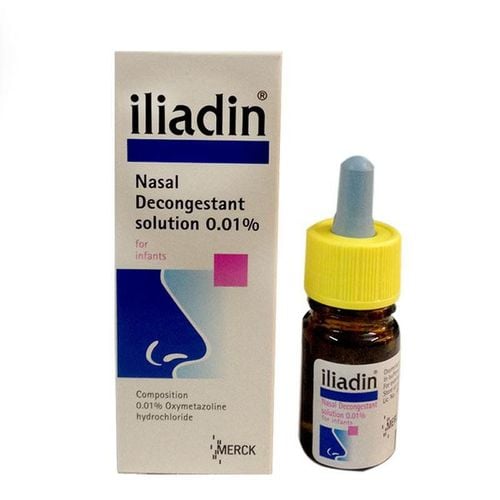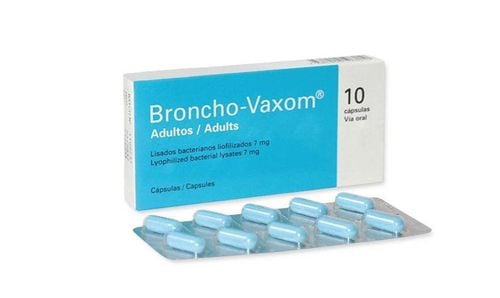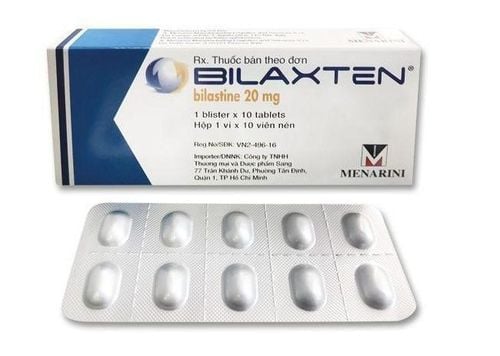This article has been reviewed by Master, Doctor Dang Huy Toan - Pediatrician - Neonatologist, Department of Pediatrics - Neonatology, Vinmec International General Hospital Nha Trang.
Inflammation of the nasal mucosa is a condition where the nasal mucous membrane becomes swollen, inflamed, and red. Common symptoms include nasal congestion, clear nasal discharge, nasal itching, sore throat, discomfort, and coughing. If left untreated, this condition can progress to more serious complications, such as sinusitis.
1. Causes of Nasal Mucosa Swelling
Some causes of nasal mucosa swelling include:
- Rhinitis: This includes both non-allergic rhinitis and allergic rhinitis. Inflamed nasal mucosa may present with symptoms such as itching, burning, runny nose, or nasal congestion.
- Sinusitis: This condition often causes nasal discharge, leading to frequent sniffing by the patient, which can result in a burning sensation in the nose, damage to the nasal mucosa, and swelling of the nasal mucosa. Depending on the location of the inflamed sinus, the nasal discharge may either flow out through the nose or down the throat. Anterior sinusitis results in nasal discharge flowing out of the front of the nose, while posterior sinusitis causes the discharge to flow into the throat.
- Sudden changes in weather can irritate the nose, leading to discomfort and causing inflammation and swelling of the nasal mucosa.
- Polluted living environments: Dust and smoke can damage the nasal mucosa, increasing the risk of infections from various viruses and bacteria.
- Nose picking habit: This can damage the cilia in the nasal mucosa. Besides, the act of picking the nose can cause the rupture or cracking of blood vessels in the mucosal layer, leading to swelling of the nasal mucosa, which may be accompanied by nosebleeds.
- Improper nasal hygiene or the use of inappropriate nasal cleaning solution can also lead to inflammation of the nasal mucosa and increase the risk of nasal swelling.
Symptoms of nasal mucosal swelling may include:
- Itching and burning sensations in the nose.
- A feeling of swelling, heat, or redness in the nose.
- Runny nose, nasal congestion, and pain in the nasal area.
2. Treatment of nasal mucosal swelling
The general rule in treating nasal mucosal inflammation is to reduce nasal vasodilation and clear the nasal passages. Some solutions are:
- Nasal saline spray: A small saline spray or saline solution for nasal drops is used to thin mucus and ease the nasal mucosa.
- Antihistamine nasal spray: If oral antihistamines are not effective, antihistamine nasal sprays can be used to reduce symptoms.
- Nasal sprays containing corticosteroids: They are available to use if saline nasal spray or antihistamine nasal sprays can not control the symptoms.
Nasal drops that do not contain acetylcholine: They are commonly used if the main symptom is a runny nose. Some side effects may include epistaxis and drying of the mucosa. - Vasoconstrictor medications: These help reduce nasal congestion. Side effects may include high blood pressure, rapid heartbeat, and nervousness.

3. Complications of nasal mucosal edema.
If the inflamed and swollen nasal mucosa is not treated or is treated improperly, it can lead to various complications of rhinitis and affect the physiological function of the nose. Some complications include:
- Reduced respiratory capacity can lead to difficulty breathing, resulting in decreased oxygen intake. This will affect the function and metabolism of other organs. Patients probably have symptoms such as headaches, dizziness, memory impairment, chest pain, and anxiety, etc…. If respiratory difficulties persist, it can cause hypertrophy of the nasal turbinates and trigger Obstructive Sleep Apnea, which is a risk factor for cardiovascular diseases and even sudden death.
- Anosmia
- Lower respiratory complications: laryngitis, tracheitis, chronic bronchitis, bronchial asthma.
- Ocular complications: very common, especially in children, bacteria can travel through the nasolacrimal duct causing conjunctivitis, dacryocystitis, and blepharitis, etc…
- If rhinitis progresses to sinusitis without timely treatment, the infection can spread to other parts of the body, such as the orbit, optic nerve, brain, meninges, cavernous sinus thrombosis, or sinus vein thrombosis.
- Nasal cancer
4. Preventing nasal mucosal edema
Preventive measures for nasal mucosal inflammation and edema include:
- Avoiding nasal irritants, reducing humidity in the air, turning on an exhaust fan while showering, using a range hood while cooking, regularly vacuuming, cleaning the house, and washing bedding carefully.
- Perform daily nasal irrigation with saline solution can effectively help prevent illness, especially in individuals with sinusitis or symptoms due to the flu. However, do not perform nasal irrigation when there is an ear infection or there is something blocking the nose which causes difficulty in breathing.
In conclusion, mild inflammatory swelling in the nose can lead to severe and unpredictable complications, even posing a life-threatening risk to the patients if not treated promptly and appropriately. Therefore, it is essential to apply preventive measures and seek medical attention when experiencing symptoms of nasal mucosal inflammation and edema.
Nasal mucosal inflammation is a common condition affecting many individuals and can cause significant disruptions to the health and daily lives of patients. Thus, when symptoms of the condition arise, it is important to visit a hospital for examination by specialists and to receive appropriate treatment.
To arrange an appointment, please call HOTLINE or make your reservation directly HERE. You may also download the MyVinmec app to schedule appointments faster and manage your reservations more conveniently.













